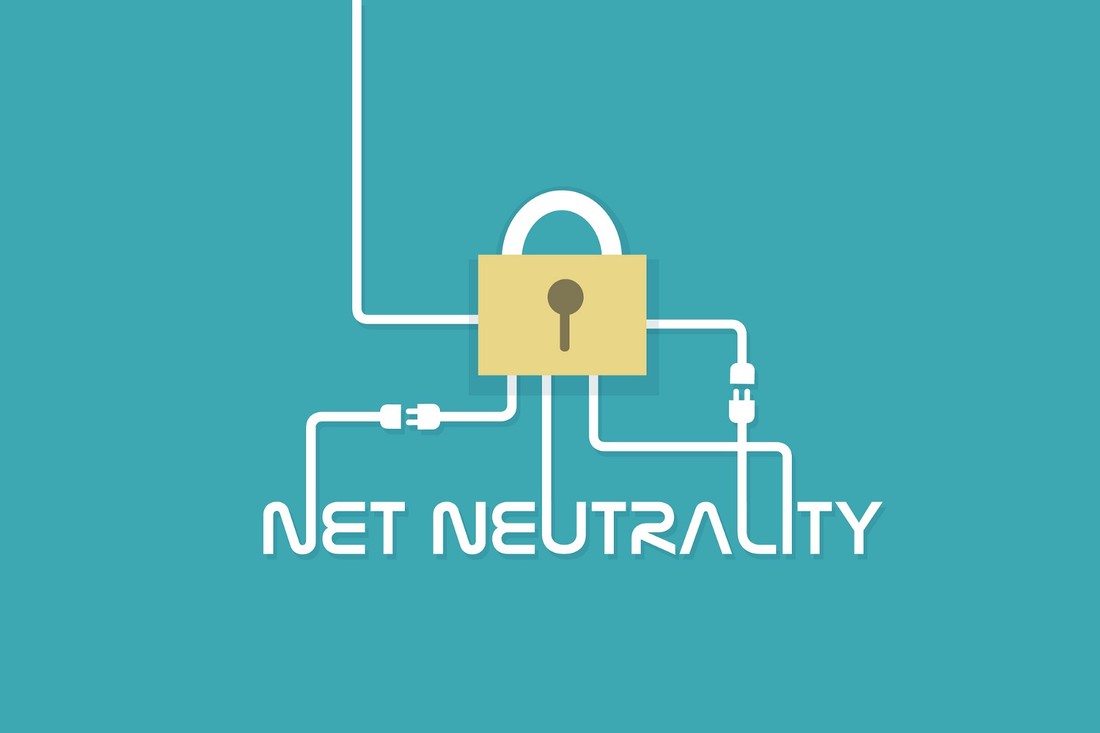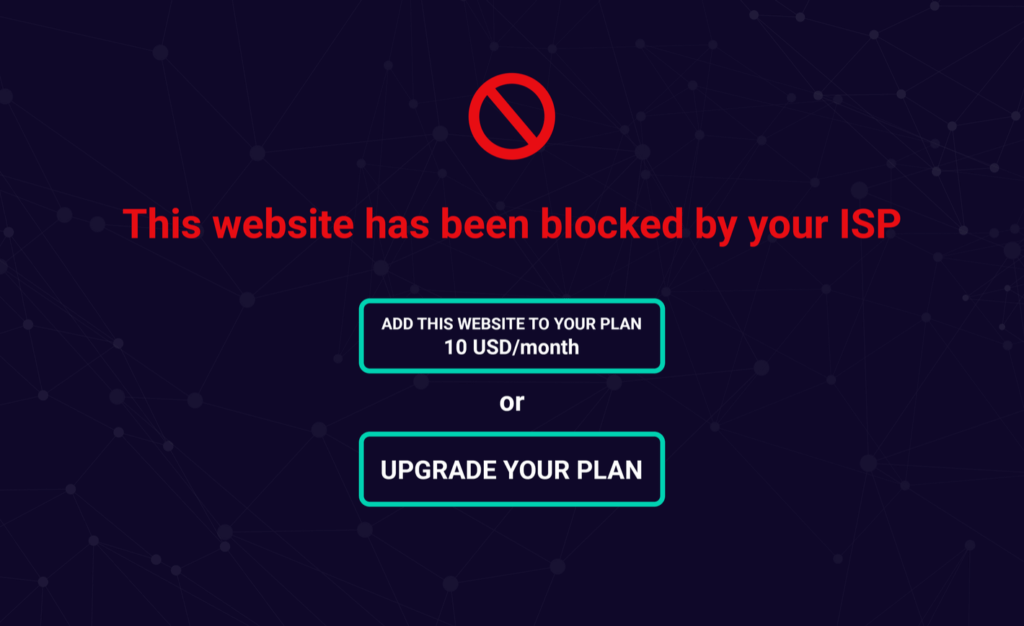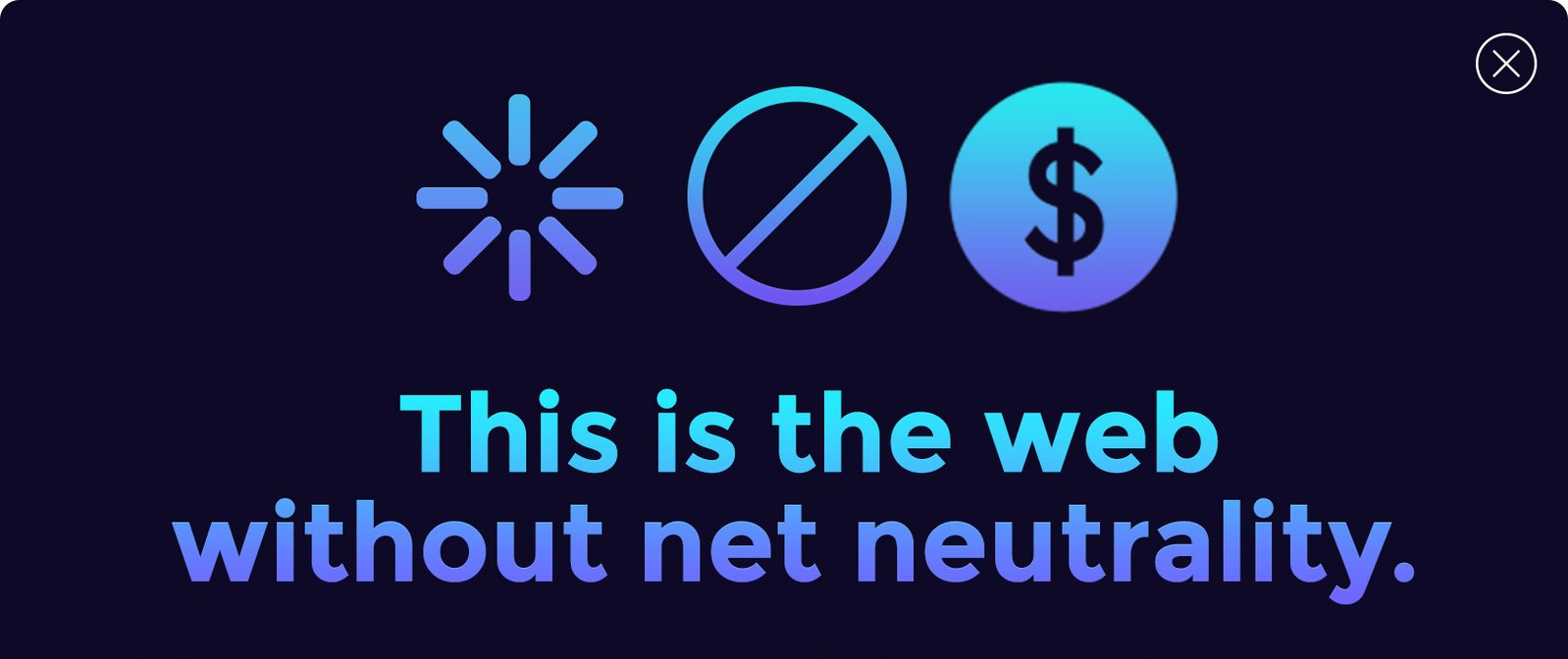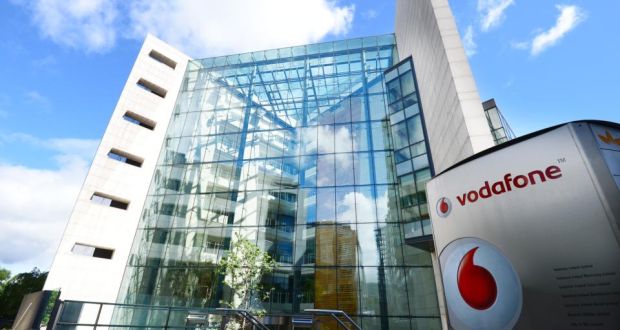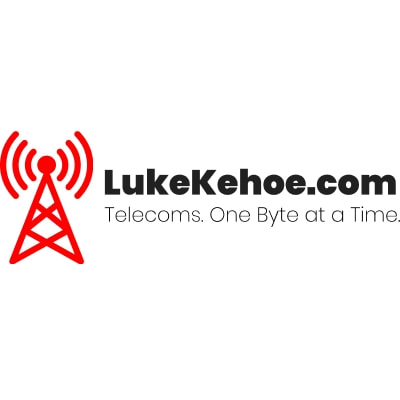An Analysis of Net Neutrality in Ireland: Why we are Particularly Vulnerable to its Eradication
Without Net Neutrality, we will find ourselves on a slippery slope, a slope that will destroy the Internet as we know it today.
Published 10/08/18
What is the Internet? Think about that for a second. Many believe the Internet is Facebook, Google or perhaps YouTube. But in reality, the Internet is a system of highways composed of many exits, and it's not controlled by any one person or corporation. You can travel wherever you like, at a speed that meets your needs, and adventure to whatever exit you wish without any interference.
And that last point is the pinnacle of importance as we move forward. The Internet has given birth to hundreds of new industries, created quality jobs, connected those who were previously isolated, given people with disabilities new opportunities to learn and flourish, and provided us with the tools needed to innovate. In fact, some would point to the Internet as one of the greatest inventions in the history of the human race, an invention so transformative that it advances our race.
But we are facing a threat so large that has the power to shift the ownership of the Internet from us, the users, to huge corporations, effectively creating an intranet. If the Internet becomes an Intranet, it will be controlled by a few people, and become a walled garden. We will browse what the companies want us to browse, not what we wish, and traffic will be throttled to websites and services which have not paid for priority access. It would be a mess, and completely destroy the Internet as we know it today.
And that last point is the pinnacle of importance as we move forward. The Internet has given birth to hundreds of new industries, created quality jobs, connected those who were previously isolated, given people with disabilities new opportunities to learn and flourish, and provided us with the tools needed to innovate. In fact, some would point to the Internet as one of the greatest inventions in the history of the human race, an invention so transformative that it advances our race.
But we are facing a threat so large that has the power to shift the ownership of the Internet from us, the users, to huge corporations, effectively creating an intranet. If the Internet becomes an Intranet, it will be controlled by a few people, and become a walled garden. We will browse what the companies want us to browse, not what we wish, and traffic will be throttled to websites and services which have not paid for priority access. It would be a mess, and completely destroy the Internet as we know it today.
Net Neutrality Explained
Net Neutrality is a simple concept. It aims to keep the Internet in the state it is today, a land of freedom and prosperity. On a more advanced level, Net Neutrality means treating all Internet traffic the same, regardless of its source, and regardless of the Internet Service Provider that is being used. In practice, this means that services such as Netflix should be available on every Internet Service Provider, and should not receive any form of prioritisation or throttling.
Internet Service Providers should enable access to any website or service, and not favour or block a particular one. Net Neutrality aims to prevent the development of Internet fast lanes, in which certain services are given priority while others are throttled. For small companies, especially those who engage in online activity, Net Neutrality ensures their services are as accessible as those of huge conglomerates. This prevents large companies paying Internet Service Providers to prioritise their traffic over others.
The idea of Net Neutrality has become very pervasive in the US, where Internet Service Providers such as Comcast and AT&T have been found to prioritise some services over others. However, the rules to keep Net Neutrality in place were recently repealed by the FCC, or Federal Communications Commission (The US equivalent of ComReg), and we are beginning to witness some of its effects already.
For the Internet Service Providers, the existence of Net Neutrality is an obstacle to pocketing more profits. These telecoms companies have watched, in jealousy, at the rise of companies such as Facebook and Google. People's use of SMS and phone calls have declined, and that is a direct result of the introduction of free services such as Whatsapp. When you decide to make a call on Whatsapp, you are taking away revenue from your mobile network. This is disturbing for telecoms companies and that's why they've formed lobbyist groups to argue for the abolition of Net Neutrality.
Another argument that Internet Service Providers often like to raise against Net Neutrality is the amount money they spend on developing infrastructure such as base stations, data centres, etc. This infrastructure is then used by companies such as Google and Facebook to deliver their services, and they don't have to pay a penny to the provider. Telecoms companies argue that paid peering, where a company like Netflix must pay to ensure the smooth delivery of their services, are necessary to warrant investing in new infrastructure. But, it is really just an excuse to find a new stream of revenue.
Internet Service Providers should enable access to any website or service, and not favour or block a particular one. Net Neutrality aims to prevent the development of Internet fast lanes, in which certain services are given priority while others are throttled. For small companies, especially those who engage in online activity, Net Neutrality ensures their services are as accessible as those of huge conglomerates. This prevents large companies paying Internet Service Providers to prioritise their traffic over others.
The idea of Net Neutrality has become very pervasive in the US, where Internet Service Providers such as Comcast and AT&T have been found to prioritise some services over others. However, the rules to keep Net Neutrality in place were recently repealed by the FCC, or Federal Communications Commission (The US equivalent of ComReg), and we are beginning to witness some of its effects already.
For the Internet Service Providers, the existence of Net Neutrality is an obstacle to pocketing more profits. These telecoms companies have watched, in jealousy, at the rise of companies such as Facebook and Google. People's use of SMS and phone calls have declined, and that is a direct result of the introduction of free services such as Whatsapp. When you decide to make a call on Whatsapp, you are taking away revenue from your mobile network. This is disturbing for telecoms companies and that's why they've formed lobbyist groups to argue for the abolition of Net Neutrality.
Another argument that Internet Service Providers often like to raise against Net Neutrality is the amount money they spend on developing infrastructure such as base stations, data centres, etc. This infrastructure is then used by companies such as Google and Facebook to deliver their services, and they don't have to pay a penny to the provider. Telecoms companies argue that paid peering, where a company like Netflix must pay to ensure the smooth delivery of their services, are necessary to warrant investing in new infrastructure. But, it is really just an excuse to find a new stream of revenue.
We are Particularly Vulnerable to its Eradication
We are particularly vulnerable to the eradication of Net Neutrality, and its obvious as to why. There are just three mobile networks in Ireland (Vodafone, Three and Eir) and only two large Internet Service Providers (Eir and Virgin Media). With such little competition, the integrity of Net Neutrality diminishes very rapidly.
For example, Eir maintains huge power over our access to the Internet in Ireland, if the company decided it was time to create Internet fast lanes, we could do very little as there is no other provider in many locations. This same premise extends to our mobile networks, which are the only means for many to access the Internet. With the flick of a switch, Vodafone could throttle traffic to certain websites if they fail to pay up.
To gain a greater insight into what our Internet would like without Net Neutrality, let's look at TV services provided by Sky, Virgin Media, and Vodafone. At its most basic level, the Internet would become paid TV if Net Neutrality dies. With TV, we pay to access different channels, and we see a very limited range of content. Whichever company pays the TV provider the most, we see their content being promoted above others. There's no real choice, you must watch what you are given. Now, if we compare this with the Internet, they are worlds apart. You can watch whatever service you like, whether its YouTube, Netflix or Amazon Video, and aren't forced to choose from a limited selection of services. This freedom of choice will slowly fade without Net Neutrality, just as it did with TV.
For example, Eir maintains huge power over our access to the Internet in Ireland, if the company decided it was time to create Internet fast lanes, we could do very little as there is no other provider in many locations. This same premise extends to our mobile networks, which are the only means for many to access the Internet. With the flick of a switch, Vodafone could throttle traffic to certain websites if they fail to pay up.
To gain a greater insight into what our Internet would like without Net Neutrality, let's look at TV services provided by Sky, Virgin Media, and Vodafone. At its most basic level, the Internet would become paid TV if Net Neutrality dies. With TV, we pay to access different channels, and we see a very limited range of content. Whichever company pays the TV provider the most, we see their content being promoted above others. There's no real choice, you must watch what you are given. Now, if we compare this with the Internet, they are worlds apart. You can watch whatever service you like, whether its YouTube, Netflix or Amazon Video, and aren't forced to choose from a limited selection of services. This freedom of choice will slowly fade without Net Neutrality, just as it did with TV.
The Companies For and Against Net Neutrality
Even with the support that Net Neutrality has garnered, many companies are intent on seeing its death. Those companies are almost always Internet Service Providers who have been freaked out by Silicon Valley. Prime examples of these companies include Vodafone, the largest telecoms company in the world by revenue, AT&T and Comcast. Here in Ireland, Vodafone and Eir have tested our tolerance for an Internet without Net Neutrality.
On Vodafone's part, the company quietly implements traffic management on some of its pay as you go plans even if you do not exceed your data allowance, as is described in the T&Cs shown above. This means that you may experience slower speeds during times of congestion than other users, something that I've found is the case with my own plan. Obviously, it is fair that Vodafone does need to manage the network in a way that ensures the best possible experience for everyone, but I'm not too sure if this is the best way to go about doing things, especially when it is not made clear by the company.
Vodafone has also dabbled in the zero-rating game, promoting its own Vodafone TV service by zero-rating the app's data usage on your mobile connection. This, at its simplest level, means Vodafone is prioritising their own services over those offered by other content providers. In the UK, Vodafone operates a service called "Vodafone Passes" which allows customers to pay for zero-rated data to music services, video and more. This is a blatant abuse of Net Neutrality, and the UK's telecoms watchdog, Ofcom, is currently investigating the legality of the service. It would be a disastrous mistake for Vodafone to bring this feature to Ireland, as it hurts competition amongst content providers by favouring those that flash the most cash in Vodafone's face.
Now, its time to look at Eir, who is the biggest culprit for urging the eradication of Net Neutrality in Ireland. The company provides a slew of pay as you go plans, which appear very enticing on the surface, but jeopardise a free and open Internet. The plans include a feature which allows for unlimited access to certain services such as YouTube, Snapchat, Whatsapp and Instagram. Eir zero-rates these services, up to a fair usage limit, and if you wish to use services not included, they will eat into your data allowance. Without a doubt, it is clear that customers will be more inclined to use the zero-rated services rather than the ones that could potentially cost them money. I should also mention that Eir, like Vodafone, also zero-rates data usage on its Eir Vision TV app.
For every company against Net Neutrality, there is at least two fighting for its survival. Those companies are the ones that rely on the Internet for the distribution of their services, think Amazon, Google and Spotify. Keeping Net Neutrality in place is in their interests, without it, they'll be forced to pay Internet Service Providers to access Internet users. This highlights the divide which has slowly developed between tech companies and traditional telecoms monopolies. As explained, these tech companies have been chipping away at the profits of telecoms companies by offering free services that essentially replace paid ones.
On Vodafone's part, the company quietly implements traffic management on some of its pay as you go plans even if you do not exceed your data allowance, as is described in the T&Cs shown above. This means that you may experience slower speeds during times of congestion than other users, something that I've found is the case with my own plan. Obviously, it is fair that Vodafone does need to manage the network in a way that ensures the best possible experience for everyone, but I'm not too sure if this is the best way to go about doing things, especially when it is not made clear by the company.
Vodafone has also dabbled in the zero-rating game, promoting its own Vodafone TV service by zero-rating the app's data usage on your mobile connection. This, at its simplest level, means Vodafone is prioritising their own services over those offered by other content providers. In the UK, Vodafone operates a service called "Vodafone Passes" which allows customers to pay for zero-rated data to music services, video and more. This is a blatant abuse of Net Neutrality, and the UK's telecoms watchdog, Ofcom, is currently investigating the legality of the service. It would be a disastrous mistake for Vodafone to bring this feature to Ireland, as it hurts competition amongst content providers by favouring those that flash the most cash in Vodafone's face.
Now, its time to look at Eir, who is the biggest culprit for urging the eradication of Net Neutrality in Ireland. The company provides a slew of pay as you go plans, which appear very enticing on the surface, but jeopardise a free and open Internet. The plans include a feature which allows for unlimited access to certain services such as YouTube, Snapchat, Whatsapp and Instagram. Eir zero-rates these services, up to a fair usage limit, and if you wish to use services not included, they will eat into your data allowance. Without a doubt, it is clear that customers will be more inclined to use the zero-rated services rather than the ones that could potentially cost them money. I should also mention that Eir, like Vodafone, also zero-rates data usage on its Eir Vision TV app.
For every company against Net Neutrality, there is at least two fighting for its survival. Those companies are the ones that rely on the Internet for the distribution of their services, think Amazon, Google and Spotify. Keeping Net Neutrality in place is in their interests, without it, they'll be forced to pay Internet Service Providers to access Internet users. This highlights the divide which has slowly developed between tech companies and traditional telecoms monopolies. As explained, these tech companies have been chipping away at the profits of telecoms companies by offering free services that essentially replace paid ones.
Conclusion: Net Neutrality's Death would be a Catastrophe for Mankind
Vodafone and Eir's actions put us on a slippery slope that will lead to a dystopian future for our Internet, an Internet which will be controlled solely by the people who provide it. That would be a catastrophe for mankind, it would stifle innovation, hinder the growth of the digital economy, and jeopardise our future.
The Internet should be viewed as a public utility and a critical part of our infrastructure, a utility as important as water and electricity. Just as roads have connected our societies, the Internet has also, shortening the distances between people across the globe from days and hours to mere seconds.
Many would assume that this issue is primarily concentrated in the US, but that would be an ignorant approach. Just as with so many other regulations, they tend to trickle to other parts of the world. Even some of the most powerful leaders on this continent have called for the death of Net Neutrality, such as Angela Merkel, and this puts us in great danger.
The people who provide the Internet are intent on destroying it, driven by the fear of declining profits. We can't let a tool so important fall into the wrong hands because it would jeopardise the Internet's very existence.
The Internet should be viewed as a public utility and a critical part of our infrastructure, a utility as important as water and electricity. Just as roads have connected our societies, the Internet has also, shortening the distances between people across the globe from days and hours to mere seconds.
Many would assume that this issue is primarily concentrated in the US, but that would be an ignorant approach. Just as with so many other regulations, they tend to trickle to other parts of the world. Even some of the most powerful leaders on this continent have called for the death of Net Neutrality, such as Angela Merkel, and this puts us in great danger.
The people who provide the Internet are intent on destroying it, driven by the fear of declining profits. We can't let a tool so important fall into the wrong hands because it would jeopardise the Internet's very existence.
Vodafone Review: The Best Network in Ireland keeps getting betterAn in-depth review of Vodafone, Ireland's largest mobile network, covering everything from network quality to plans and customer care.
|
